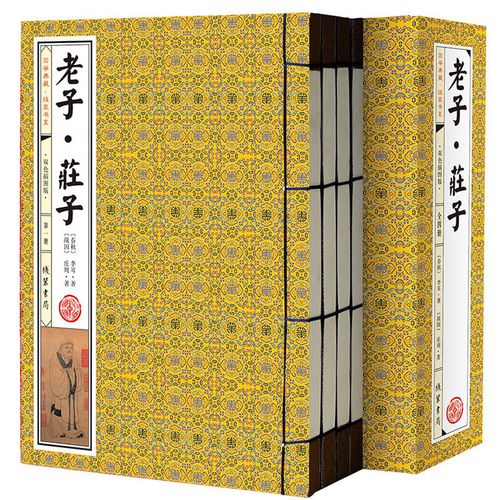Translation of Zhuangzi into English
Zhuangzi, also known as Chuang Tzu, was an influential Chinese philosopher who lived during the Warring States period. His philosophical ideas have had a profound impact on the development of Daoism and Chinese thought in general. Translating Zhuangzi's complex and poetic prose into English poses a challenge due to the nuances of the Chinese language and the depth of his philosophy. Various translators have attempted to capture the essence of Zhuangzi's work in English, each bringing their own interpretation to his writings.
There have been several notable translators who have endeavored to bring Zhuangzi's philosophical musings to an Englishspeaking audience. Here are a few key translators:
1. Burton Watson
Burton Watson, a renowned scholar of Chinese literature, has provided English translations of classical Chinese texts, including Zhuangzi. His translation of "The Complete Works of Zhuangzi" is widely respected for its clarity and accuracy.
2. Thomas Merton
Thomas Merton, a Trappist monk and mystic, also offered a translation of selected passages from Zhuangzi. His spiritual perspective adds a unique dimension to the understanding of Zhuangzi's philosophy.
3. Victor H. Mair
Victor H. Mair, a professor of Chinese at the University of Pennsylvania, has produced a translation of Zhuangzi that aims to convey the beauty and depth of the original text. His version sheds light on the poetic nature of Zhuangzi's writing.
Translating Zhuangzi's work presents several challenges due to the richness of the Chinese language and the intricate philosophical ideas he explores. Some of the key challenges include:
1. Cultural Nuances
Zhuangzi's writing is deeply rooted in Chinese culture, history, and philosophical traditions. Translators must carefully navigate these cultural nuances to ensure the essence of his philosophy is preserved in English.
2. Philosophical Depth
Zhuangzi's philosophical ideas often rely on wordplay, paradoxes, and metaphors that may not have direct equivalents in English. Translators need to find creative ways to convey these complex concepts to an Englishspeaking audience.

3. Poetic Language
Zhuangzi's writing style is poetic and evocative, with layers of meaning that can be challenging to capture in translation. Translators must strive to maintain the beauty and eloquence of his language while making it accessible to English readers.
When delving into English translations of Zhuangzi's work, it is important to keep the following guidelines in mind:
1. Multiple Perspectives
Recognize that each translator brings their own interpretation and perspective to Zhuangzi's philosophy. It can be enriching to read different translations to gain a more comprehensive understanding of his ideas.
2. Contextual Understanding
Take into account the cultural and historical context in which Zhuangzi lived and wrote. Understanding the background of Daoism and Chinese philosophy can deepen your appreciation of his work.
3. Critical Reflection
Engage critically with the text and contemplate the deeper meanings underlying Zhuangzi's allegories and anecdotes. His writings often invite readers to question conventional wisdom and explore profound truths.
Overall, the translation of Zhuangzi's philosophical works into English enriches the global philosophical discourse and provides invaluable insights into the Daoist tradition. While challenges exist in capturing the full depth of Zhuangzi's thought in translation, skilled translators have made significant contributions to making his ideas accessible to an Englishspeaking audience.












评论
匿名用户
回复The Analogy of the Fish: The Limitations and Joys in Being Free.